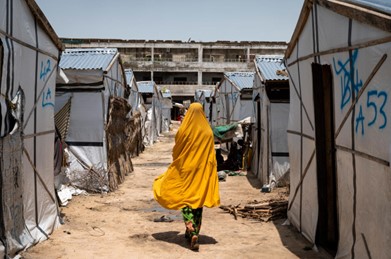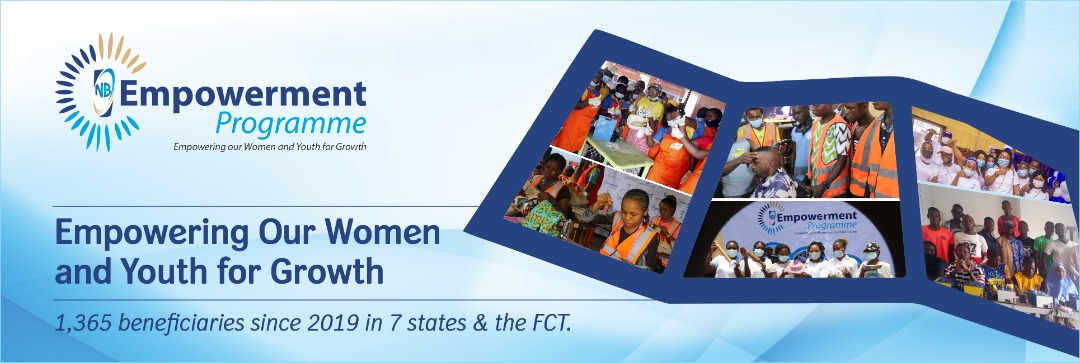The National Human Rights Commission (NHRC) and Save the Children International call on all stakeholders to strengthen coordination, collaboration and increase investment towards the protection of the rights of all children – in commemoration of World Children’s Day 2022.
Nigeria is one of the signatories to the UN Convention on the Rights of the Child (CRC). In 2003, the National Assembly adopted the Child Rights Act (CRA), a comprehensive legal instrument for the protection of the rights of all children. Nearly all the State governments have domesticated the CRA, but huge work awaits the federal, state and local governments and other stakeholders to fully finance and implement the law.
As we observe Universal Children’s Day under the theme, “Inclusion, For Every Child”, NHRC and SCI Nigeria would like to call upon families, communities and governments to renew their commitments to leave no child behind – in spite of any discriminatory, structural barriers, including age, gender, or disability. All children are entitled to equal rights, a statement by Save the Children said.
“Therefore, the theme challenges us to take a step forward by making a safe world that should be more inclusive for our children and resist every discrimination against them. The occasion offers us an opportunity to promote and celebrate children’s rights that will build a better world for them.”
Chief Tony Ojukwu, the Executive Secretary of the National Human Rights Commission, said, “As a national institution charged with the mandate of promoting and protecting human rights in Nigeria, we are committed to ensuring that the government and all stakeholders focus on entrenching values that will promote the welfare of children today for a better tomorrow.
“We believe that the wisest form of investment any progressive nation can make is to invest in our children. This is the sure way to assure the country’s sustainability and its people’s well-being.”
While children worldwide continue to face various forms of adversity in society, a girl is particularly subjected to oppression, exploitation, and discrimination due to her gender. Furthermore, children with disabilities are challenged by inadequate access to and lack of quality education, health care, nutrition and social protection services.
Aisha Mohammed, a representative of children living with disabilities at the Borno State Children’s Parliament, said, “It is my wish that the society, community, government, and nongovernmental organizations, consider children living with disability in their decision and policy-making process and stop discriminating us.”
Toyin Aderemi-Balogun, Senior Advisor, Disability Inclusion at Save the Children International Nigeria, said, “Children with disabilities will achieve their potential if we all recognize, promote and uphold their human rights. Their full and effective inclusion at all levels is, therefore, non-negotiable. We all must play a role, starting from data disaggregation by age, gender and disability in sectoral databases, national surveys, and in monitoring and evaluating policies, programmes and services.”
Refugee children are also discriminated against and bullied because they may wear different clothing, eat different food, practice a different religion, struggle with understanding and speaking local languages, and have different cultures and customs. Onorakwa Godgift, 16, a Cameroonian refugee in Cross River State, said, “Today, it has become normal that we refugee children are sidelined in the activities of the world. Our best opinions are usually not good enough to be considered in every decision-making level, ranging from nutrition to education. Our voices or cries, beautiful ideas, talents and even our feelings are enveloped under the voices of adults everywhere we go.”
Famari Barro, Country Director, Save the Children International Nigeria, said, “The children’s rights are severely threatened by ever-increasing effects of climate change. It was a recent experience that because of flooding, thousands of children and their families were displaced, farmers left their agriculture, leaving children out of school and exposed to different forms of violent attacks and abuse. Therefore, we need to stand together for a more equal, healthy and liveable natural environment and inclusive world for all children – where their rights are fully protected, respected and fulfilled.”
Save the Children International, and the National Human Rights Commission called for the full implementation of the federal and state-level policies and strategies developed to protect the child’s rights and welfare. SCI and NHRC urge all stakeholders to renew their commitments to do whatever it takes to advance child rights in Nigeria.

















